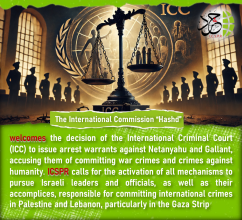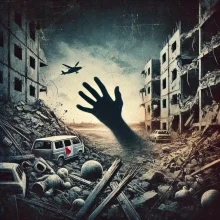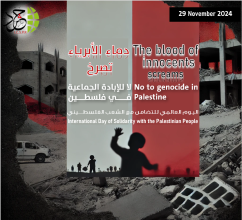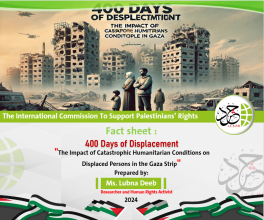
A meeting discussing the future of the humanitarian reality in the Gaza Strip
Num: 66/ 2021
Date : 20 Sep 2021
Press release
A meeting discussing the future of the humanitarian reality in the Gaza Strip
Occupied Palestine/Gaza: The International Commission to Support Palestinians’ Rights (ICSPR) organized, in cooperation with the Arab College of Applied Sciences, and Humans Without Borders, on Monday, 20/9/2021, a meeting entitled “The future of the humanitarian reality in the Gaza Strip”.
The meeting was opened by Dr. Hani Odeh, Commissioner-General of Humans Without Borders, pointing out that the humanitarian reality in the Gaza Strip is closely linked to the occupation, and that this was linked to the internal political system in light of the reaction between the two sides of the division, which contributed to the complexity of the scene and the worsening humanitarian reality in the Gaza Strip.
He stressed the need not to surrender or retreat, pointing out that the emergence of the Human Without Borders organization came from the mobilization of human energies in the diaspora, where solidarity with the Palestinian cause formed a framework which core and destination is Palestine.
For his part, Dr. Salah Abd al-Atti Chairman of ICSPR said: The Gaza Strip was part of the Oslo Accords and began to be contested after the expansion plan created by former Israeli Prime Minister Ariel Sharon with the aim of creating a conflict between the “Islamic current and the national current,” in conjunction with America’s attempt to divide the already divided and create sectarian entities and soft states in the Arab countries to make “Israel” a desirable entity in the region, and began targeting refugees in Syria, the West Bank and the Gaza Strip, stressing that the political division serves Israel interest in order to maintain the geographical division between the Gaza Strip and the bank”.
Abd al-Atti stated: “Israel has developed scenarios for the Gaza Strip, the first of which is the establishment of a state in Gaza, which is the preferred scenario for regional and international powers. The second scenario is the conclusion of a peace agreement between the Palestinian Authority, the American administration and the occupation state, and this is an unlikely option, stressing that despite all of what was mentioned, the future will be only for the Gaza Strip, where it has oil, if it is allowed to extract it, it will be able to achieve self-sufficiency, and the youth of the Strip have a clear activity at all levels, as they invented tools and technological innovations. However, Gaza suffers from an acute shortage of drug insecurity, especially medicines for cancer patients and chronic diseases”.
He added: “The continuous Israeli siege for 16 years has left catastrophic effects, some of which have been reflected in the economic situation, which indicates that the political future of Gaza has not yet been determined, as Gaza is fighting to establish its place in the geography.
Abd al-Atti pointed out that during the rule of former US President Donald Trump, Gaza paid the price and sacrificed a lot at the internal level, as the sanctions imposed by the authority increased, and the economy in Gaza declined to catastrophic and dangerous indicators.
In turn, Yosri Darwish, head of the General Union of Cultural Centers said: “What our Palestinian people have achieved today is caused by two main factors, namely the Israeli occupation and the national authority.
He pointed out that everything that is happening in the Gaza Strip, facilitating the entry of the Qatari grant, the demand to lift the siege on the Gaza Strip, and the external interventions from Qatar, Egypt and others, all come in the context of “security in exchange of the economy”, where the administration of the Gaza Strip accepts to stabilize the situation on the border areas and provide security for the occupation in exchange of the Qatari grant and humanitarian aid and reconstruction.
On his part, Dr. Samir Abu Mudallalah, academic lecturer and economic analyst, said that the Gaza Strip lacks the elements of resilience and life, as it has been subjected to a strict siege since 2006, in addition to the internal Palestinian division, and the measures taken during March of 2017 against employees, represented in compulsory retirement or reducing salaries to half, and this resulted in a worsening of the economic situation, especially since there were government measures taken against the private sector, in which workers receive 800 shekels, despite the fact that the minimum wage was previously set at 1450 shekels, and there are efforts to set it by the Minister of Labor, Dr. Nasri Abu Jaish during 2022 to reach 1,800 shekels, yet, the most important thing is the application on the ground in the Palestinian private sector”.





